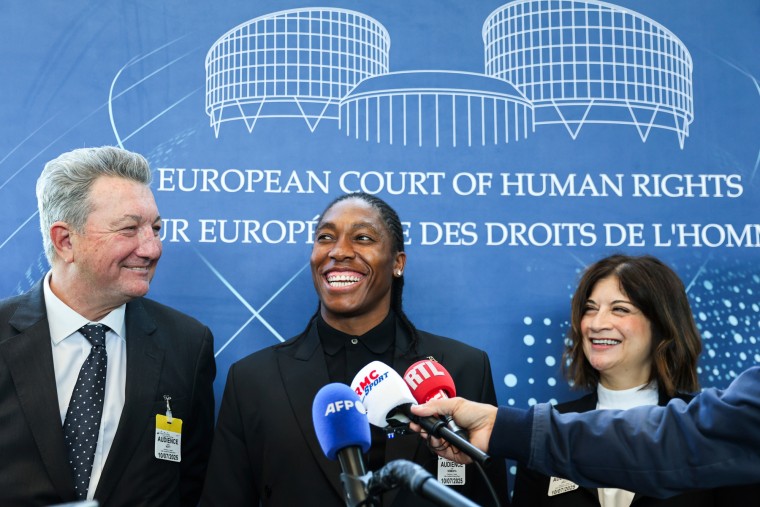The Trevor Project receives $45M from MacKenzie Scott after difficult years and federal funding cuts
The Trevor Project, known for its hotline for LGBTQ+ youth, received $45 million from billionaire and author MacKenzie Scott at the end of 2025, the organization said Monday.
The gift is the largest in the organization’s history but also a major boon following years of management turmoil, layoffs and the loss of significant federal fundingover the summer.
“I literally could not believe it and it took some time. I actually gasped,” said Jaymes Black, CEO of The Trevor Project, when they were notified of Scott’s gift.
Scott, whose fortune largely comes from her ex-husband Amazon founder Jeff Bezos, gave more than $7 billion to nonprofits in 2025, but this gift to The Trevor Project was not included among the donations she disclosed on her website in December. Scott previously gave The Trevor Project $6 million in 2020.
In July, the Trump administration stopped providing specific support for gay, trans and gender nonconforming young people who called the 988 National Suicide & Crisis Lifeline. The Trevor Project was one of the organizations staffing that option and lost $25 million in funding, the nonprofit said.
The Trevor Project continues to run an independent hotline for LGBTQ+ young people that Black said reaches about 250,000 young people annually, but they served another 250,000 callers through the 988 Press 3 option, which was tailored for LGBTQ+ young people.
Related Stories
U.S. Department of Health and Human Services reported more than 1.5 million contacts were routed through the 988 service between Sept. 2022 and July 2025.
Since the program’s end, The Trevor Project’s hotline has become even more central to mental health support for queer young people, said Scott Bertani, director of advocacy at the National Coalition for LGBTQ Health.
“Their services fill a gap that generic crisis lines simply aren’t designed to meet, particularly for young people facing identity-based stress, isolation or rejection,” Bertani said in a statement.
The Trevor Project has faced internal turmoil after its budget grew from around $4 million in 2016 to over $83 million in 2023, according to its public tax returns. The nonprofit’s board removed its CEO in 2022 and has gone through a series of layoffs, including in July. Black said the project’s 2026 budget was $47 million.
“We are a smaller organization than we were before,” Black said. “And we will continue to be really intentional and really mindful around growth and what growth really means for the organization.”
After it lost the 988 funding, The Trevor Project launched an emergency fundraiser that brought in $20 million to date, Black said, which they also hope Scott saw as proof they would make it through this period.
“MacKenzie Scott’s folks were clear, like this gift was made for long-term impact,” Black said, adding that they would take their time deciding how to use the funds.
Thad Calabrese, a professor at New York University who researches nonprofit financial management, said it’s not uncommon for nonprofits that grow very quickly to run into financial problems. But he also said the cuts and general instability in especially federal funding for nonprofits has upended many organizations’ business models.
“Academic research has often viewed public funding as very stable, as a signal to donors that you’ve arrived as an organization, but the reality is you are now also open to changing political fortunes,” he said.
He said research is also unclear whether diversifying an organization’s revenue streams is always a better financial strategy.
“You’re less dependent upon a few funders, but on the other hand, if you have a lot of different revenue streams, do you have the management capacity for that?” Calabrese asked, speaking generally and not commenting specifically on The Trevor Project.
Scott has distinguished herself among the biggest individual donors by giving large, unrestricted gifts to nonprofits, often with a focus on equity or social justice. With the exception of an open call in 2023, she does not ask for project proposals nor accept applications.
Despite the size of her gifts, which now often exceed the recipient organization’s annual budget, research from the Center for Effective Philanthropy has found that concerns about nonprofits misusing Scott’s funds or growing unsustainably have largely not been born out.
Elisha Smith Arrillaga, vice president of research at the Center for Effective Philanthropy, said that’s likely because of the vigorous vetting that Scott’s team, the members of which are largely unknown, does before making gifts.
She also said just like an investor might double down on a for-profit startup that’s struggling, some funders may still believe in an organization’s potential despite setbacks.
“People make all different kinds of investments because they really believe in the outcomes that organization can make and what their gifts can do to help accelerate that,” Smith Arrillaga said.
In an essay announcing her 2025 gifts, Scott said, “The potential of peaceful, non-transactional contribution has long been underestimated, often on the basis that it is not financially self-sustaining, or that some of its benefits are hard to track. But what if these imagined liabilities are actually assets? … What if the fact that some of our organizations are vulnerable can itself be a powerful engine for our generosity?”
Black called Scott’s second gift “a powerful validation,” of The Trevor Project’s mission and impact, saying, “We’re calling this our turnaround story.”




